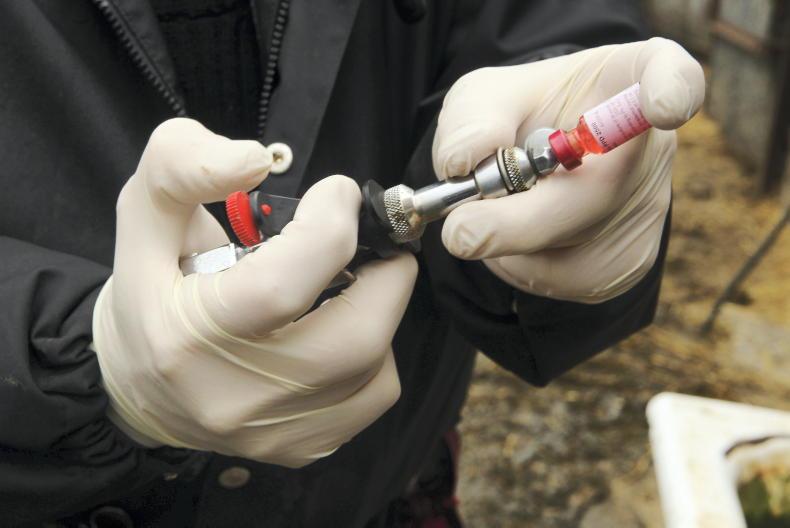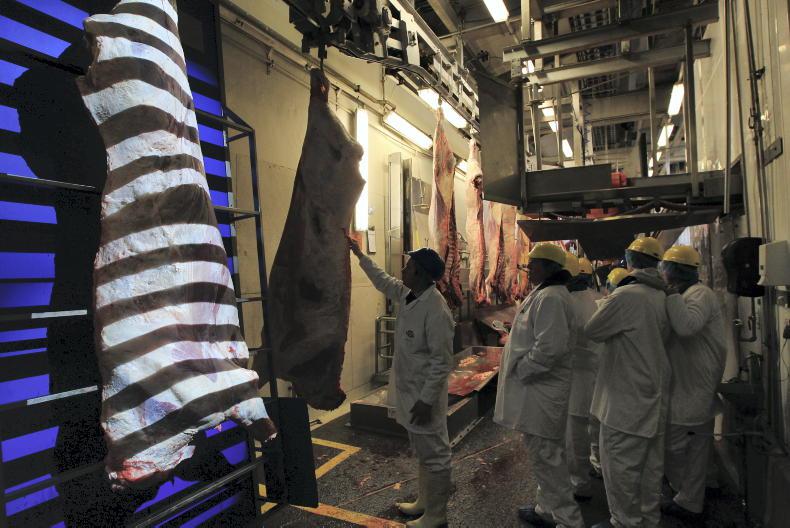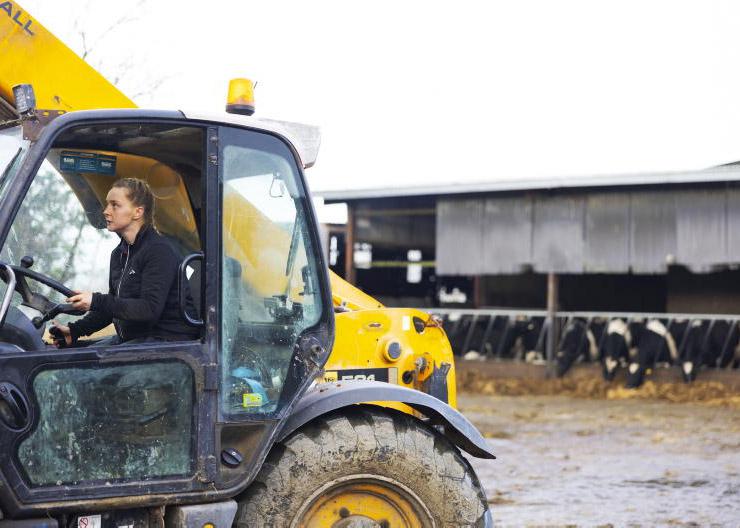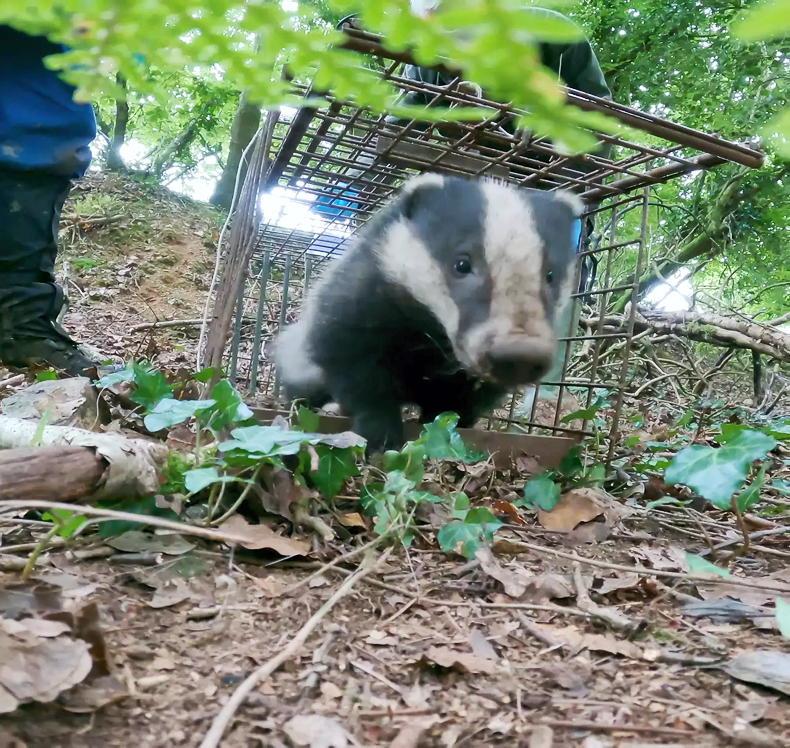Representatives of private vets are yet to have first sight of a new DAERA contract for the provision of TB testing services, despite the existing contract running out on 10 April 2023.
A spokesperson for the Association of Veterinary Surgeons Practicising in NI (AVSPNI), which represents 500 vets in NI, confirmed that “members cannot continue testing without an acceptable contract”, adding that “AVSPNI is concerned that the delay in issuing a contract will cause disruption to the current TB eradication programme”.
Local vets have raised various issues about the contract in place since April 2016, and hailed at the time as being “much more robust” than what went before. As well as increased emphasis on ensuring testing is done to a high standard, it introduced the principle of penalties if performance across various parameters is not to a certain level.
In 2016 the TB testing fee paid to vets was brought into line with England and Wales, resulting in a reduced overall payment. The rate has remained unchanged at £54.50 for the first animal, £2.50 per head up to 100 cattle and £2.28 per head thereafter.
However, vets maintain that a new contract in England and Wales, effective from June 2021, now has significantly better terms than those which apply in NI.
“An acceptable contract will include terms and conditions similar to those offered to colleagues in comparable areas of GB,” the AVSPNI spokesperson said.
With a shortage of vets across the UK, this disparity in fees is making it more difficult for practices to compete for vets with counterparts in Britain.
In general, wage rates are going up, but a practice in NI testing herds of mixed sizes, will do well to cover over 200 cattle in a day. “At that, you are just about breaking even on the vet labour cost, travel etc., and if you add in the cost of administration, it is loss making,” commented a local vet.
He said many private vets are also unhappy with the way the contract has been extended and amended since 2016. It was meant to be for five years, and since 2016 has had 25 changes made, including to a number of key performance indicators (KPIs).
These include notifying reactor animals within one working day of the test being read, and since April 2021, all reactors must be DNA tagged, with samples to arrive with the DAERA enforcement team at Loughry within five working days. Compliance rate for this KPI is set at 90%.
Any practices that fall foul of compliance with the various KPIs have fines applied to their last quarter of TB testing, which according to sources can equate to “a huge amount of money”.
“There is a level of resentment over the last contract, especially in the way it was open ended. We want a fair contract and one that can’t be changed without mutual agreement.
But we have to be given time to read the contract and get expert advice. Hopefully the Department can see sense and come to an arrangement with us. The last thing we want to do is not test cattle after 10 April,” commented the vet.
On enquiry, a DAERA spokesperson said the Department is “actively working on the terms of a new contract” but given it is a commercial matter it would not be appropriate to comment any further at present.
Read more
DAERA unable to predict end to TB spike
Surge in TB reactors on NI farms in 2022
Representatives of private vets are yet to have first sight of a new DAERA contract for the provision of TB testing services, despite the existing contract running out on 10 April 2023.
A spokesperson for the Association of Veterinary Surgeons Practicising in NI (AVSPNI), which represents 500 vets in NI, confirmed that “members cannot continue testing without an acceptable contract”, adding that “AVSPNI is concerned that the delay in issuing a contract will cause disruption to the current TB eradication programme”.
Local vets have raised various issues about the contract in place since April 2016, and hailed at the time as being “much more robust” than what went before. As well as increased emphasis on ensuring testing is done to a high standard, it introduced the principle of penalties if performance across various parameters is not to a certain level.
In 2016 the TB testing fee paid to vets was brought into line with England and Wales, resulting in a reduced overall payment. The rate has remained unchanged at £54.50 for the first animal, £2.50 per head up to 100 cattle and £2.28 per head thereafter.
However, vets maintain that a new contract in England and Wales, effective from June 2021, now has significantly better terms than those which apply in NI.
“An acceptable contract will include terms and conditions similar to those offered to colleagues in comparable areas of GB,” the AVSPNI spokesperson said.
With a shortage of vets across the UK, this disparity in fees is making it more difficult for practices to compete for vets with counterparts in Britain.
In general, wage rates are going up, but a practice in NI testing herds of mixed sizes, will do well to cover over 200 cattle in a day. “At that, you are just about breaking even on the vet labour cost, travel etc., and if you add in the cost of administration, it is loss making,” commented a local vet.
He said many private vets are also unhappy with the way the contract has been extended and amended since 2016. It was meant to be for five years, and since 2016 has had 25 changes made, including to a number of key performance indicators (KPIs).
These include notifying reactor animals within one working day of the test being read, and since April 2021, all reactors must be DNA tagged, with samples to arrive with the DAERA enforcement team at Loughry within five working days. Compliance rate for this KPI is set at 90%.
Any practices that fall foul of compliance with the various KPIs have fines applied to their last quarter of TB testing, which according to sources can equate to “a huge amount of money”.
“There is a level of resentment over the last contract, especially in the way it was open ended. We want a fair contract and one that can’t be changed without mutual agreement.
But we have to be given time to read the contract and get expert advice. Hopefully the Department can see sense and come to an arrangement with us. The last thing we want to do is not test cattle after 10 April,” commented the vet.
On enquiry, a DAERA spokesperson said the Department is “actively working on the terms of a new contract” but given it is a commercial matter it would not be appropriate to comment any further at present.
Read more
DAERA unable to predict end to TB spike
Surge in TB reactors on NI farms in 2022










SHARING OPTIONS